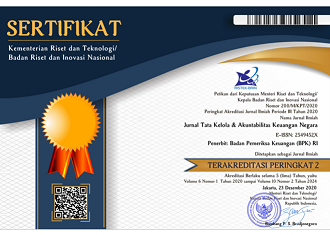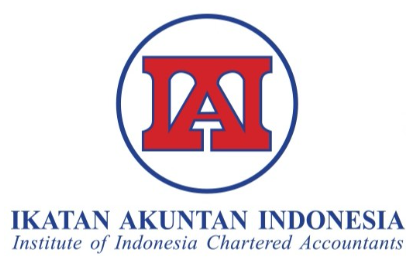Rereading the Mathnawi of Mawlana Jalal Al Din Rumi from the standpoint of ethics management in the public sector
DOI:
https://doi.org/10.28986/jtaken.v7i1.500Keywords:
Ethics, Integrity, Audit, Mathnawi, Mawlana Jalal al Din RumiAbstract
It is widely believed that a virtuous state always commits to uphold and consistently implement ethical values. If ethics cannot be maintained in the public sector, it would drive unethical behaviors of public officials that ultimately damage the public reputation and cause nepotism, irregularities, waste of public resources, loss of lives and properties, etc. Meanwhile, implementing ethical values into practice for public sector management requires a systematical approach and policies. Since the culture of a nation also influences people's behaviors, thus the role of cultural values should be considered in the management of ethical values in the public sector. This study examines the masterpiece work of Mawlana Jalal al-Din Rumi, The Mathnawi, as an example of a cultural resource. This study has two main purposes: Firstly, it aims to raise awareness about the advice of Mawlana Jalaleddin Rumi regarding the essentials of ethical management in the public sector through Mathnawi. The second aim is to encourage readers to analyze and evaluate their own cultural resources to understand and implement the ethical management philosophies they envisage through a systematic perspective. This study argues that the core elements of Mathnawi with supporting local cultural values can play a crucial role in strengthening the practice of ethical management in public sector organizations. Therefore, it can be said that Mathnawi includes advice regarding the key essentials of ethics management.
References
Buang, A. (2015). Accountability and integrity in the public sector. EUROSAI Magazine, 21, 110-113. Retrieved from https://www.eurosai.org/handle404?exporturi=/export/sites/eurosai/.content/documents/magazines/Eurosai21_en.pdf
Chittick, W. C. (2005). The Sufi Doctrine of Rumi, foreword by Seyyed Hossein Nasr. Bloomington: World Wisdom Inc. Retrieved from http://traditionalhikma.com/wp-content/uploads/2015/07/The-Sufi-Doctrine-of-Rumi-by-William-Chittick.pdf
Cebecioglu, E. (2007). Hz. Mevlana Uzerine Genel bir Degerlendirme (A General evaluation on Mawlana). Tasavvuf the Journal of Scientific and Academic Research, 8, 7-12.
Council of Judges and Prosecutors. (2002). The Bangalore Principles of Judicial Conduct. Retrieved from https://www.cjp.gov.tr/Eklentiler/Dosyalar/5f9c50b6-2781-4986-9ab8-3563cb6a8a7d.pdf
Commonwealth Ombudsman. (2009). Better practice guide to complaint handling. Australia: Canberra. Retrieved from https://www.ombudsman.gov.au/__data/assets/pdf_file/0020/35615/Better-practice-guide-to-complaint-handling.pdf
COSO. (2013). Internal control-integrated framework principles. Retrieved from https://www.coso.org/Documents/COSO-ICIF-11x17-Cube-Graphic.pdf
EUROSAI TFAE. (2014). Supporting SAI to enhance their ethical infrastructure-part II managing ethics in practice-analysis. Retrieved from http://www.eurosai-tfae.tcontas.pt/activities/Papers/Activities/Ethics%20within%20SAIs/Ethics%20within%20SAIs-Part%20II-%20SAIs%20practices/Ethics%20within%20SAIs-Part%20II-SAI's%20practices(English).pdf
EUROSAI TFAE. (2017). The Guideline on the audit of ethics in public sector organizations. Retrieved from http://www.eurosai-tfae.tcontas.pt/activities/Guidance/Activities/TFAE %20Guidelines%20to%20audit%20ethics/g-english-TFAEGuidelines%20to%20audit%20ethics.pdf
EUROSAI TFAE. (2017a). How to implement ISSAI 30 (INTOSAI Code of Ethics). Retrieved from https://www.eurosai.org/handle404?exporturi=/export/sites/eurosai/.content/documents/working-groups/audit-ethics/RelDoc/Guidelines-to-implement-ISSAI-30-EN.PDF
Golpinarli, A. (1959). Mevlana Celaleddin hayati, felsefesi, eserleri, eserlerinden secmeler/the life, philosophy and works of Mawlana Jalaleddin and selections from his works. Istanbul: Inkilap Kitapevi.
Groysberg, B., Lee, J., Price, J., & Cheng, J. Y. (2018). The leader's guide to corporate culture: How to manage the eight critical elements of organizational life. Harvard Business Review 96, (1), 44–52. Retrieved from https://hbr.org/2018/01/the-leaders-guide-to-corporate-culture
International Mevlana Foundation. (2020). Mevlana & his works. Retrieved from http://mevlanafoundation. com/mevlana_works_en.html
INTOSAI. (2020). ISSAI 100: Fundamental principles of public-sector auditing. Retrieved from http://www.issai.org
INTOSAI. (2021). ISSAI 130: Code of ethics. Retrieved from https://www.intosai.org/fileadmin/downloads/documents/open_access/ISSAI_100_to_400/issai_130/ISSAI_130_en.pdf
Karaismailoglu, A. (2014). The life, works, and ideas of Mevlana. Retrieved from http://mevlanader.com/the-life-works-and-ideas-of-mevlana/
Konur, H. (2007). Bir Ahlak Kitabi Olarak Mesnevi/Mathnawi as an ethical and moral work. Journal of Marife, 7(3), 215-224. Retrieved from https://www.marife.org/marife/article/view/403/403
Luenendonk, M. (2020). Ethical leadership guide: Definition, qualities, pros & cons, examples. Retrieved from https://www.cleverism.com/ethical-leadership-guide-definition-qualities-pros-cons-examples/
OECD. (2005). Public sector integrity, a framework for assessment. Paris: OECD Publishing. Retrieved from http://www.keepeek.com/Digital-Asset-Management/oecd/governance/public-sector-integrity_9789264010604-en#.WZVPclFJaUk
OECD. (2013). Ethics training for public offıcials. Retrieved from https://www.oecd.org/corruption/acn/resources/EthicsTrainingforPublicOfficialsBrochureEN.pdf
OECD. (2020). OECD public integrity handbook. Paris: OECD Publishing. Retrieved from https://www.oecd-ilibrary.org/sites/ac8ed8e8-en/1/3/10/index.html?itemId=/content/publication/ac8ed8e8-en&_csp_=676f6ac88ad48a9ffd47b74141d0fc42&itemIGO=oecd&itemContentType=book#section-d1e283
Pala, I. (2010). Mevlana. Istanbul: Kapi Yayinlari.
Puiu, S. (2015). Ethics management in the public sector – background and tools. Procedia Economics and Finance, 23, 604-607.
Rumi, J. (2020). The Mathnawi (Translation & Commentary by Reynold A. Nicholson). Konya, Turkey: Konya Metropolitan Municipality.
Transparency International. (2020). Whistleblowıng. Retrieved from https://www.transparency.org/en/our-priorities/whistleblowing#
UNEO (UN Ethics Office) (2020). Advice for UN Staff. Retrieved from https://www.un.org/en/ethics/advice/index.shtml
UNESCO. (2007). Mawlana Jalal-ud-Din Balkhi-Rumi (1207-1273). Retrieved from http://www.unesco.org/new/en/unesco/prizes-medals/commemorative-medals/anniversaries-historical-events-series/mawlana-jalal-ud-din-balkhi-rumi-1207-1273-2007/
Yilmaz, M. K. (2007). Mesnevi Hikayelerindeki Temalar. International Symposium on Mawlana Jalal Al-Dın Rumi And
Mawlawism, Harran Unıversity Faculty of Theology, Edit: Prof. Dr. Abdurrahman Elmali and Prof. Dr. Ali Bakkal, p.241-247. Retrieved from http://ilahiyat.harran.edu.tr/assets/uploads/other/files/ilahiyat/files/mevlana_sempozyumu_c1.pdf
Downloads
Submitted
Accepted
Published
How to Cite
Issue
Section
License
Copyright (c) 2021 Jurnal Tata Kelola & Akuntabilitas Keuangan Negara

This work is licensed under a Creative Commons Attribution-ShareAlike 4.0 International License.

Jurnal Tata Kelola dan Akuntabilitas Keuangan Negara is licensed under
a Creative Commons Attribution-ShareAlike 4.0 International License




















